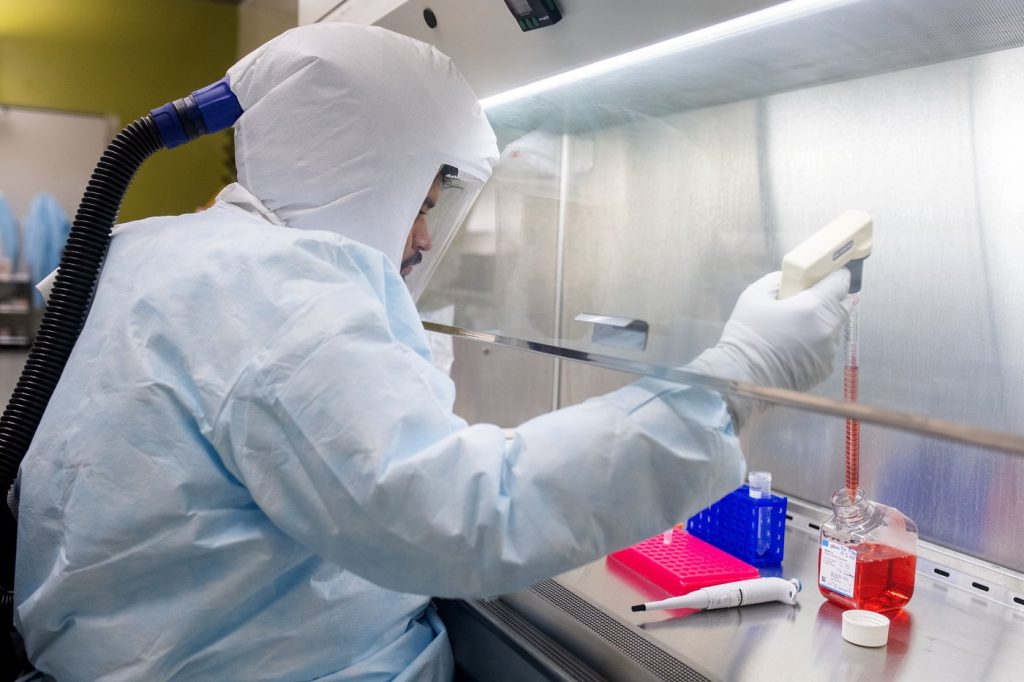SASKATOON – This week marks the 50th anniversary of one of Canada’s leading vaccine research centers, the Vaccine and Infectious Disease Organization (VIDO), situated on the University of Saskatchewan campus in Saskatoon. However, this milestone comes at a time of concern regarding U.S. policy shifts and funding cuts that pose a significant threat to the global fight against infectious diseases.
Virologist Angela Rasmussen, who works at VIDO, expressed her concerns in an interview, stating that the diminishing capacity and investment in vaccine development in the U.S. will have a profound impact on researchers worldwide. She mentioned that the current situation extends beyond mere vaccine distrust or hesitancy among the public.
Dr. Arinjay Banerjee, another virologist at VIDO, highlighted that a portion of his lab funding is sourced from the U.S.-based National Institute of Allergy and Infectious Diseases. He advocated for Canada to take on greater responsibility in light of the growing funding challenges and vaccine hesitancy in the U.S., asserting that it presents an opportunity for Canada to step up and fill the void left by the U.S.
Founded in 1975, VIDO has evolved from a livestock laboratory into a world-renowned infectious disease research institution. With over 200 scientists and staff, VIDO plays a crucial role in the ongoing battle against pandemics. It is a key player in the global "100 Days Mission," an initiative endorsed by G20 nations that aims to develop new vaccines within 100 days of identifying a pandemic threat.
During the COVID-19 pandemic, VIDO successfully isolated SARS-CoV-2 from Canada’s first reported case and was the first institution in the country to initiate clinical trials for a potential vaccine. Yet, aspirations to build upon this success have been dampened by significant funding cuts from the Trump administration, which slashed billions in grants from the National Institutes of Health (NIH).
Rasmussen noted that the NIH operated on a budget of US$48 billion last year, making it the largest funder of health research globally, while the Canadian Institutes of Health Research allocate approximately C$1 billion annually. Both organizations are instrumental in funding research activities at VIDO. She expressed hope that the Canadian government would increase its investment to counterbalance the funding cuts from the United States, though she acknowledged the financial constraints faced by private foundations and other governments.
In response to the potential financial impact from U.S. funding disruptions, VIDO announced plans to assess losses and reach out to researchers who may face funding challenges. The organization stated, “A structured process is in place to help address lost funding and ensure continuity of critical research activities.”
Rasmussen attributed the funding cuts to vaccine hesitancy fueled by misinformation perpetuated by Trump’s health secretary, Robert F. Kennedy Jr. She highlighted Kennedy's assertions against mRNA vaccines, which are widely regarded as safe by the scientific community, describing it as a tactic to mislead the public. She emphasized the battle against disinformation as a significant challenge for modern scientists, stating that building trust through transparency and demonstrating the efficacy of vaccines is essential.
Volker Gerdts, head of VIDO, remarked on the unexpected rise in vaccine hesitancy, stating that it underscores the importance of improving public communication about the benefits of vaccines and the research being conducted at VIDO. He noted the plethora of misinformation circulated on social media, allowing the public to access various false narratives.











